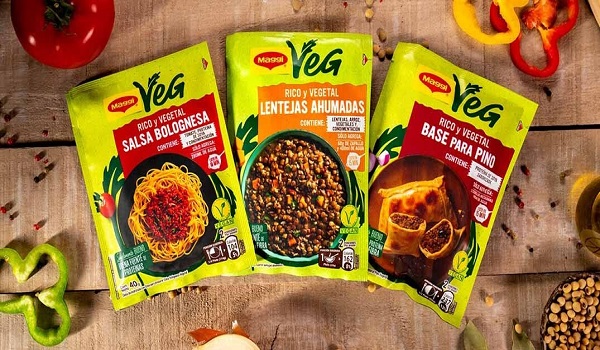Nestlé is making waves in the plant-based food arena with the launch of three innovative alternatives to white fish, now available in several European countries, including Germany, Spain, Italy, Austria, Poland, the Czech Republic, and Slovakia. The move underscores Nestlé’s commitment to providing healthier food options and capitalizes on the growing popularity of plant-based seafood.
The three new plant-based offerings include marine-style crispy fillets and marine-style crispy nuggets, which are being introduced in Europe under the Garden Gourmet brand. Nestlé has already launched crispy fish-free fingers in Asia under the Harvest Gourmet brand in Malaysia and Singapore.
Torsten Pohl, the global head of R&D for Nestlé’s food category, expressed enthusiasm about these new fish alternatives, which are a testament to Nestlé’s deep expertise in plant-based proteins and their dedication to delivering innovative products. He stated, “These new fish alternatives are the result of our deep expertise in plant-based proteins and our strong commitment to continue delivering exciting innovations.”
Nestlé, the world’s largest food company, is expanding its presence in the plant-based seafood sector as part of its broader commitment to boost sales of healthier foods by 2030. By increasing the production of foods made with plant-based ingredients, Nestlé aims to help people adopt more balanced and sustainable dietary habits. The newly introduced filets, nuggets, and fingers are crafted from ingredients like pea protein, offering consumers a rich source of both protein and fiber.
Torsten Pohl highlighted the nutritional credentials of these products, asserting that they are highly competitive in the marketplace due to their strong nutritional profile. However, similar to alternative plant-based protein sources such as beef, pork, and chicken, the plant-based seafood sector has faced challenges related to taste and texture.
Price sensitivity is another obstacle in the alternative protein space, and Nestlé has raised prices recently, impacting sales volume, which weakened to the slowest pace in three years. The company attributes this decline to factors like the popularity of weight loss drugs such as Ozempic affecting demand. Nestlé’s CEO, Ulf Mark Schneider, emphasized the need for nutrient-rich products for dieters, positioning the new plant-based fish items as an ideal fit.
Nestlé claims that its plant-based fish products closely mimic the taste and texture of white fish, as confirmed by consumer testing conducted by the company. These products are also certified vegan.
According to data from Global Market Insight, the market for plant-based seafood was valued at $800 million in 2022 and is projected to experience a compound annual growth rate of 5.5% from 2023 to 2032.
Smaller brands have also entered the plant-based seafood market in recent years. Konscious Foods, a line of plant-based seafood by French chef Yves Povtin, recently debuted in Whole Foods. Good Catch, the first vegan seafood brand in 2021, was acquired by Wicked Kitchen in 2022 to support product innovation.
Notably, the Harvest Gourmet and Garden Gourmet products hold a nutritional advantage, boasting a “nutri-score” of “A” in France, Germany, and Spain, countries that utilize the nutri-score front-of-pack labeling system. This rating sets them apart in the marketplace, emphasizing their nutritional value.


